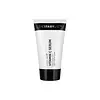What's inside
What's inside
 Key Ingredients
Key Ingredients

 Benefits
Benefits

 Concerns
Concerns

No concerns
 Ingredients Side-by-side
Ingredients Side-by-side

Water
Skin ConditioningPropanediol
Solvent3-O-Ethyl Ascorbic Acid
Skin ConditioningPentylene Glycol
Skin ConditioningPEG-12 Dimethicone
Skin ConditioningGlycerin
HumectantEctoin
Skin ConditioningAscorbic Acid
AntioxidantTocopherol
AntioxidantCarnosine
Skin ConditioningPEG-40 Hydrogenated Castor Oil
EmulsifyingDimethicone
EmollientPhenoxyethanol
PreservativePropylene Glycol
HumectantButylene Glycol
HumectantCitric Acid
BufferingSodium Gluconate
Skin ConditioningSodium Metabisulfite
AntioxidantSphingomonas Ferment Extract
Skin ConditioningXanthan Gum
EmulsifyingEthylhexylglycerin
Skin ConditioningSodium Chloride
MaskingCarbomer
Emulsion StabilisingSodium Lactate
BufferingPolysorbate 20
EmulsifyingSodium Benzoate
MaskingAcetyl Hexapeptide-8
HumectantPalmitoyl Tripeptide-1
Skin ConditioningPalmitoyl Tetrapeptide-7
Skin ConditioningWater, Propanediol, 3-O-Ethyl Ascorbic Acid, Pentylene Glycol, PEG-12 Dimethicone, Glycerin, Ectoin, Ascorbic Acid, Tocopherol, Carnosine, PEG-40 Hydrogenated Castor Oil, Dimethicone, Phenoxyethanol, Propylene Glycol, Butylene Glycol, Citric Acid, Sodium Gluconate, Sodium Metabisulfite, Sphingomonas Ferment Extract, Xanthan Gum, Ethylhexylglycerin, Sodium Chloride, Carbomer, Sodium Lactate, Polysorbate 20, Sodium Benzoate, Acetyl Hexapeptide-8, Palmitoyl Tripeptide-1, Palmitoyl Tetrapeptide-7
 Reviews
Reviews

Ingredients Explained
These ingredients are found in both products.
Ingredients higher up in an ingredient list are typically present in a larger amount.
Ascorbic Acid is is pure Vitamin C. This form makes up the largest amount of vitamin C found naturally in our skin.
Not only is vitamin C great for your overall health and immune system, it also has plenty of benefits on your skin.
Vitamin C is best used for brightening skin. It improves dark spots, acne scars, and hyperpigmentation. This is because it blocks the process of skin darkening when exposed to UV.
Remember: Vitamin C should not replace sunscreen!
Your skin uses vitamin C to build collagen. Collagen is one key component in having a strong skin barrier and plump skin. Vitamin C also plays a role in regulating collagen, thus making it effective in improving wrinkles and fine lines.
Ascorbic acid shows potent antioxidant activity. As an antioxidant, it helps fight free-radicals. Free-radicals are molecules that may damage your skin cells. These antioxidants also protect skin against UV damage.
The best formulations include Vitamin E and/or ferulic acid. These two ingredients help stabilize and provide a boost in the benefits of ascorbic acid. This is because ascorbic acid becomes unstable when exposed to UV and air. In fact, you can tell your ascorbic acid has oxidized when it turns an orange-yellow color.
Ascorbic acid is generally compatible with other ingredients. However, using ascorbic acid with other active ingredients might cause irritation. Two ingredients: copper ions and benzoyl peroxide, will inactivate ascorbic acid completely.
Read more about other types of Vitamin C:
Foods rich with vitamin C include oranges, strawberries, broccoli, bell peppers, and more. When consuming Vitamin C, your skin receives a portion of the nutrients.
Learn more about Ascorbic AcidDimethicone is a type of synthetic silicone created from natural materials such as quartz.
What it does:
Dimethicone comes in different viscosities:
Depending on the viscosity, dimethicone has different properties.
Ingredients lists don't always show which type is used, so we recommend reaching out to the brand if you have questions about the viscosity.
This ingredient is unlikely to cause irritation because it does not get absorbed into skin. However, people with silicone allergies should be careful about using this ingredient.
Note: Dimethicone may contribute to pilling. This is because it is not oil or water soluble, so pilling may occur when layered with products. When mixed with heavy oils in a formula, the outcome is also quite greasy.
Learn more about Dimethicone